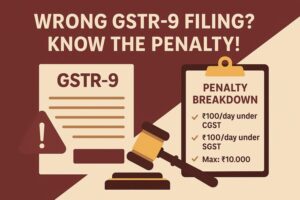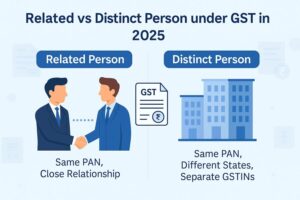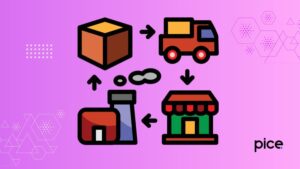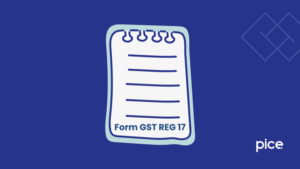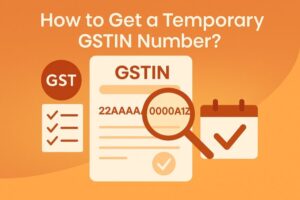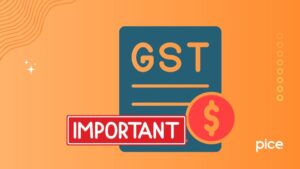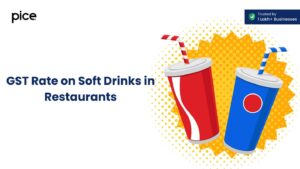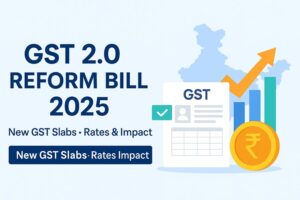What Is a GST Exemption?
- 6 Nov 24
- 9 mins
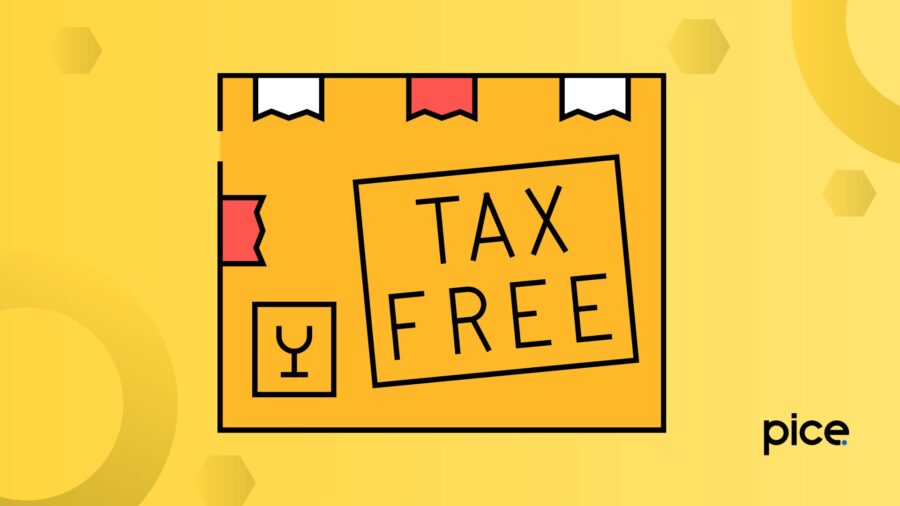
What Is a GST Exemption?
- What Qualifies as an Exempt Supply Under GST?
- Different Types of GST Exemptions
- Comprehensive List of GST Exemptions
- Leveraging GST Exemptions for Business Growth
- Why Are Certain Goods Exempted from GST?
- GST Exemptions for Small and Medium-Sized Businesses
- How Is ITC Treated if a Supply Is Exempt?
- How to Identify the Credit Attributable to Exempt Supplies?
- Conclusion
Key Takeaways
- GST exemptions apply to essential goods and services, including basic food items, healthcare, and education, which incur no GST.
- Exempt supplies under GST are divided into nil-rated supplies, fully or partially exempted items, and non-taxable supplies like alcohol.
- Small businesses may qualify for GST exemptions based on turnover, helping to reduce compliance and support growth.
- Exemptions improve cash flow for businesses by reducing tax liabilities, which can enhance financial stability and support when applying for loans.
- Understanding GST exemptions helps businesses optimize tax planning and maintain compliance, especially valuable for MSMEs.
The Goods and Services Tax (GST) has replaced various indirect taxes like VAT and service tax, to make a unified tax structure for the value of goods and services. Various GST rates apply depending on the type of goods or services. However, in certain cases, GST does not apply to certain goods and services. This is known as GST exemption. A GST exemption covers specific goods, and services, often referred to as exempted goods under GST.
What Qualifies as an Exempt Supply Under GST?
Exempt supplies under GST are those transactions that do not incur GST. These supplies can be divided into three types:
- Supplies taxable at nil tax rate (0% tax) means no GST is applied to these goods or services.
- Supplies fully or partially exempted from CGST or IGST through specific notifications issued under Section 11 of the CGST Act or Section 6 of the IGST Act.
- Supplies considered non-taxable under Section 2(78) of the Act, such as alcoholic beverages for human consumption, which are explicitly outside the scope of GST.
For these exempt supplies, GST is not charged, and businesses are not eligible to claim input tax credit (ITC) on taxes paid. It is crucial to differentiate that zero-rated supplies, such as exports, are not categorised as supplies taxed at an NIL rate.
💡 If you want to pay your GST with Credit Card, then download Pice Business Payment App. Pice is the one stop app for all paying all your business expenses.
Different Types of GST Exemptions
The following mentions the types of exemptions under GST:
- Absolute Exemptions
These exemptions apply fully without any conditions or limitations. The supply of electricity by an electricity transmission or distribution company is completely exempt from GST.
- Conditional Exemptions
Such exemptions come with specific conditions or criteria. Healthcare services with room charges enjoy a GST exemption up to a certain threshold, beyond which the tax is applicable.
- Partial Exemptions
In these cases, GST exemptions are given only up to a certain limit. Small-scale suppliers within a state can avail GST exemption if their total supply value stays below a designated limit per day.
Comprehensive List of GST Exemptions
The following is a list of GST-exempt goods:
| Types of Goods | Examples |
| Live animals | Cows, asses, goats, sheep, poultry, etc. |
| Fish | Fresh or frozen fish meat |
| Meat | Fresh meat and frozen meat of sheep, cows, goats, pigs, horses, etc. |
| Live trees and plants | Bulbs, flowers, roots, foliage, etc. |
| Natural products | Honey, fresh and pasteurized milk, cheese, eggs, etc. |
| Vegetables | Potatoes, tomatoes, onions, etc. |
| Dry fruits | Cashew nuts, walnuts, etc. |
| Fresh Fruits | Grapes, bananas, apples, etc. |
| Coffee, tea and spices | Tea leaves, coffee beans, turmeric, ginger, etc. |
| Sugar | Sugar, jaggery, etc. |
| Grains | Rice, wheat, oats, barley, etc. |
| Seeds | Oil seeds, flower seeds, cereal husks, etc. |
| Products of the milling industry | Different types of flour |
| Water | Mineral water, tender coconut water, etc. |
| Baked goods | Bread, pizza base, puffed rice, etc. |
| Fossil fuels | Electrical energy |
| Drugs and pharmaceuticals | Human blood, contraceptives, etc. |
| Fertilisers | Goods and organic manure |
| Beauty products | Bindi, kumkum, kajal, etc. |
| Newsprint | Rupee notes, judicial stamp paper, envelopes, etc. |
| Ornaments | Plastic and glass bangles, etc. |
| Printed items | Printed books, maps, newspapers, etc. |
| Fabrics | Silkworm cocoon, silk waste, raw silk, khadi, etc. |
| Waste | Municipal waste, sewage sludge, etc. |
| Pottery | Clay lamps, earthen pots, etc. |
| Hand tools | Hammer, spade, etc. |
Here is a list of GST exemption services:
| Types of services | Examples |
| Government services | Transportation of goods or people, postal service, services offered by the Reserve Bank of India, services by a foreign diplomat in India, services offered to diplomats, etc. |
| Agricultural services | Cultivation, harvesting, supplying farm labour, renting or leading agricultural machinery, warehouse-related activities, services provided by a commission agent or the Board for buying or selling agricultural produce or Agricultural Produce Marketing Committee, etc. |
| Transportation services | Transportation of passengers by air, transportation of goods by road, water, rail, etc., payment of toll, transportation of goods where the cost of transport is less than ₹1,500, etc. |
| Judicial services | Services given by the partnership firm of advocates, arbitral tribunal or senior advocates to an individual or business entity whose aggregate turnover is up to ₹40 lakhs |
| Organisational services | Services provided by tour operators for foreign tourists, exhibition organisers for international business exhibitions, etc. |
| Educational services | Transportation of faculty or students, examination services, mid-day meal scheme, services given by IIMs, etc. |
| Medical services | Services offered by ambulances, charities, veterinary doctors, medical professionals, etc. does not include hair transplant or cosmetic or plastic surgery. |
| Other services | Services given by GSTN to the Central or State Government or Union Territories, admission fee payable to theatres, sports events, circuses, etc. which charges an amount till ₹250 |
Leveraging GST Exemptions for Business Growth
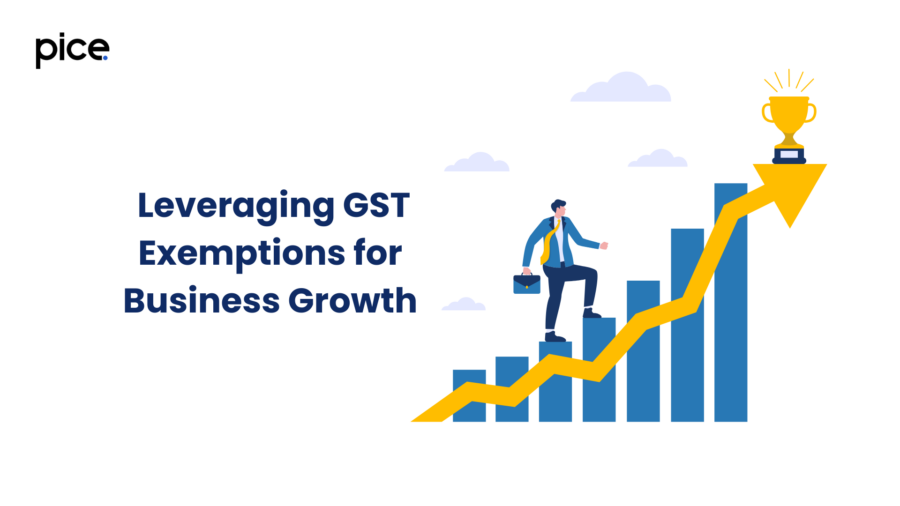
For a GST-registered person, grasping the details of GST exemptions goes beyond mere compliance. Using these exemptions helps in reducing tax liabilities and strengthening the financial position of the business. Whether exemptions apply to goods or services, they create opportunities for tax savings and better cash flow management. It is crucial when you want to apply for business loans, since it gives lenders a clearer view of your company's financial health, which makes it easier to secure finance.
Why Are Certain Goods Exempted from GST?
Under India's system, certain goods, services and transactions are not subject to GST. These exemptions are granted for various reasons tied to policy objectives, socio-economic considerations and administrative ease. Below are common reasons explaining why certain goods are exempted from GST:
- Social Welfare and Public Interest: Essential goods and services, such as basic food items like rice, wheat and fresh milk, as well as healthcare and education services, are exempt from GST to support societal welfare.
- Exports: Goods and services meant for export are usually zero-rated under GST, meaning they are taxed at a 0% rate. This keeps exports competitive internationally without the burden of GST impacting their prices.
- Small Businesses: To reduce the compliance burden on smaller businesses and promote growth, businesses with lower turnover may qualify for exemptions or lower rates. The Composition Scheme, for example, offers reduced GST rates to small enterprises within certain turnover thresholds.
- Interstate Supplies: Some interstate transactions involving specified goods and services may be exempt or taxed at reduced rates to ease the flow of goods and services across state borders.
- Government Services: Certain services provided by the government or local authorities are exempt to avoid double taxation and make the accounting procedures simpler.
- Agriculture: Many agricultural products and services are exempt to support India’s agricultural sector, which is vital to the country's economy.
- Financial Services: Some financial services, such as banking, loan interest and insurance, are either exempt from GST or subject to special provisions.
- Administrative Simplicity: Exemptions for certain goods and services help streamline the tax system, reducing compliance efforts for businesses and making GST regulations easier to navigate.
- Transitional Provisions: During the shift to the GST system, some exemptions or concessional rates were introduced to smooth the transition and reduce the tax burden for businesses adjusting to the new system.
GST Exemptions for Small and Medium-Sized Businesses
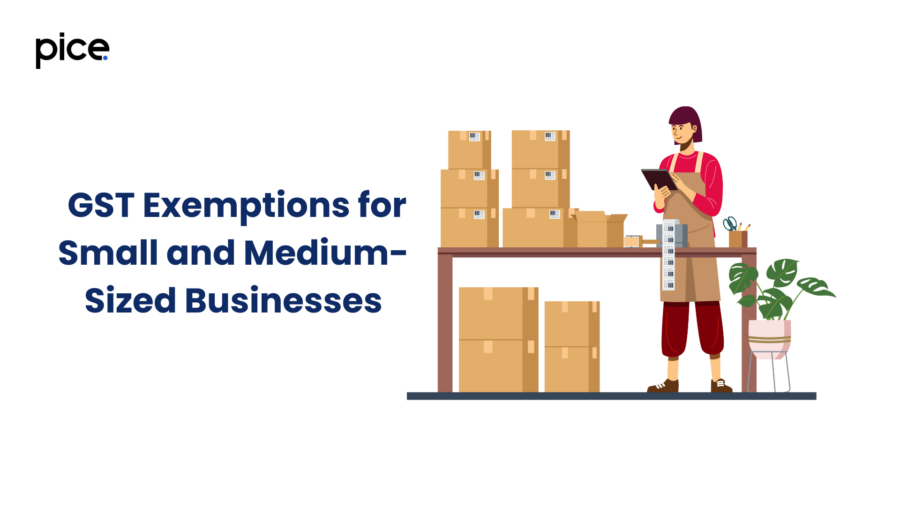
Small and medium-sized businesses can benefit from GST exemptions if their total annual turnover stays within certain limits. For goods, the threshold is set at ₹40 lakhs, but it drops to ₹20 lakhs in hilly and north-eastern states. The limit for services is ₹20 lakhs, while for businesses in hilly and northeastern areas, their limit is ₹10 lakhs.
How Is ITC Treated if a Supply Is Exempt?
Under GST in India, you cannot claim Input Tax Credit (ITC) on supplies that are exempt.
How to Identify the Credit Attributable to Exempt Supplies?
The credit attributed to exempt supplies can be calculated using the formula:
Formula: (A/T) x C
Here,
A = Aggregate value of exempt supplies
T = Total turnover
C= Common Credit
| Common Credit | Total Input Tax in a Period |
| Less | Tax specifically related to non-business use |
| Less | Tax solely linked to exempt supplies |
| Less | Credits such as for works contracts, rental of cabs, etc. which are ineligible under Section 17(5) |
| Less | Tax directly associated with taxable supplies, including zero-rated supplies |
Conclusion
Understanding which are the exempted goods under GST is crucial for businesses who want to optimise their tax liabilities and manage cash flow effectively. Exempted supplies, especially for small and medium-sized enterprises, can significantly impact financial planning.
By strategically leveraging these exemptions, businesses can enhance their competitive edge while ensuring compliance with GST regulations. Additionally, recognising the conditions under which exemptions apply helps in navigating the complexities of the tax system, ultimately supporting sustainable growth and stability in the marketplace.
 By
By 





